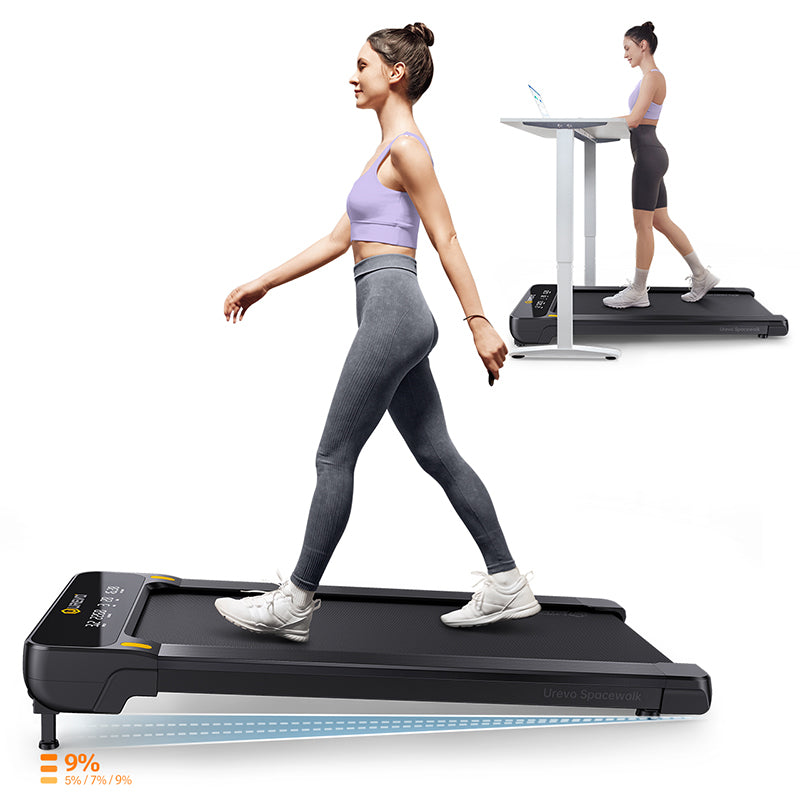In the ever-evolving landscape of industrial exercise regimens, incorporating treadmill incline can be a game-changer. This innovative approach not only enhances cardiovascular health but also targets specific muscle groups, providing a comprehensive workout. Let's delve into the multifaceted benefits and practical applications of integrating treadmill incline into your industrial exercise routine.

Understanding the Benefits of Treadmill Incline
One of the primary advantages of incorporating treadmill incline into your industrial exercise regimen is the significant boost in cardiovascular endurance. By simulating uphill walking or running, the heart works harder, thereby improving overall cardiovascular health. Additionally, the incline setting engages different muscle groups, particularly the glutes, hamstrings, and calves, which are often underutilized in flat treadmill workouts.
For instance, a study revealed that walking at a 9% incline can increase calorie burn by up to 50% compared to walking on a flat surface. This makes treadmill incline an efficient way to maximize workout results within a limited time frame.
Implementing Treadmill Incline in Industrial Settings
Incorporating treadmill incline into your industrial exercise regimen can be seamlessly integrated into various settings, from corporate wellness programs to factory fitness initiatives. For example, companies can set up treadmill stations with adjustable inclines in break rooms or designated fitness areas. This encourages employees to take short, invigorating walks during breaks, boosting both physical health and productivity.
Moreover, treadmill incline workouts can be tailored to different fitness levels. Beginners can start with a 2-3% incline, gradually increasing as their endurance improves. Advanced users can challenge themselves with steeper inclines and interval training, ensuring that the regimen remains engaging and effective.
Designing an Effective Treadmill Incline Workout
To maximize the benefits of incorporating treadmill incline into your industrial exercise regimen, it’s essential to design a well-rounded workout plan. Here’s a sample routine to get you started:
- Warm-Up: Begin with a 5-minute walk at a 0% incline to prepare your muscles and joints.
- Incline Walk: Increase the incline to 5% and walk for 10 minutes at a moderate pace.
- Interval Training: Alternate between 1 minute of walking at a 10% incline and 2 minutes at a 3% incline for 15 minutes.
- Cool Down: Gradually decrease the incline to 0% and walk for 5 minutes to bring your heart rate down.
This routine not only enhances cardiovascular fitness but also strengthens lower body muscles, making it a versatile addition to any industrial exercise regimen.
Overcoming Common Challenges
While incorporating treadmill incline into your industrial exercise regimen offers numerous benefits, it’s important to address potential challenges. One common issue is the risk of overuse injuries, particularly for individuals new to incline training. To mitigate this, encourage gradual progression and emphasize the importance of proper form and technique.
Additionally, some employees may find treadmill incline workouts monotonous. To keep the regimen engaging, consider incorporating multimedia options such as virtual trails or interactive fitness apps. This not only adds variety but also enhances the overall workout experience.
Conclusion
Incorporating treadmill incline into your industrial exercise regimen is a strategic move that can yield substantial health benefits. By understanding the advantages, implementing practical applications, and designing effective workouts, you can create a dynamic and engaging fitness program. Embrace this innovative approach and watch as it transforms your industrial exercise routine, promoting a healthier and more productive workforce.



